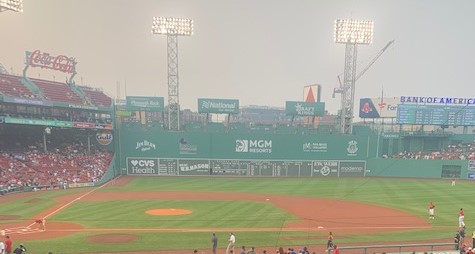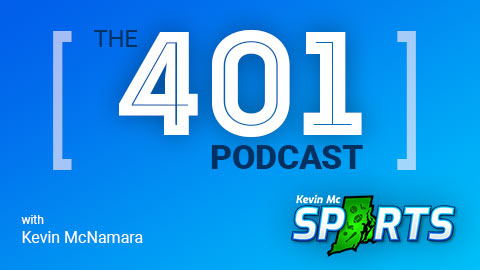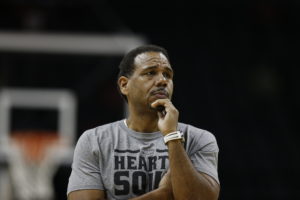Don’t let the dark and gloomy present cast a pall on what’s happened so far this year.
Well, it was fun while it lasted. For four giddy months the Red Sox defied the gravity of their Earth-bound talent base and soared with the American League — indeed, the MLB — elite, capturing the imagination of New England’s sports fans and reigniting the region’s love affair with baseball . . . an affair strained in recent years by tone-deaf management, on-field failures, and the sport’s slow, ugly descent into tortuous unwatchability. (Emphasis on slow. And ugly. For an example, dig up a tape of the Blue Jays’ Rafael Dolis attempting to lull the Red Sox to sleep last Sunday through paralytic inaction, taking what seemed like 35 to 50 seconds between each pitch.)
Ban Rafael Dolis from baseball.
— Tyler Milliken ⚾️ (@tylermilliken_) August 8, 2021
This is ridiculous. #RedSox | #DirtyWater| #MLB
I’m with you, Tyler.
But I digress.
Now it appears the fun is over. As the radio team said in the bottom of the ninth on Tuesday:

(Sorry. Generational thing. Gotta be a certain age to appreciate it.)
The announcers pointed out that when this bad stretch started, it was the starting pitching that was letting the Sox down. Then the offense cooled. Now it’s the bullpen. It’s hard to keep a ship afloat when leaks are springing everywhere, and the Sox are living proof: A 2-11 record since July 29, a 14-19 record since their eight-game winning streak ended on July 3, and a rather astounding 9 1/2-game turnaround in the standings in little over a month: From 4 1/2 games ahead on July 5 to five games behind on Aug. 11.
The Red Sox don’t even hold the first wild-card spot anymore. That’s been passed to the A’s and the Sox are now clinging to the second (and final) position, with those dastardly Yankees — left for dead after the Sox’ miracle comeback on July 25 — and the can’t-kill-’em Blue Jays rolling toward them like an avalanche.
It ain’t pretty.
So, this being Boston, we of course have to start the blame game. In some (many?) corners of Red Sox Nation, it’s all Chaim’s fault:
Shout out to Chaim Bloom. Really did a bang up job at the trade deadline 👍🏻 while everyone is getting better; let’s just stay the same. Went from leading the league to wondering if we’ll make the playoffs.
— Beach Harmon (@bt_harmon) August 11, 2021
I have contacted the Undertaker. The death for the Red Sox could come any day now. Doctor Chaim Bloom told the patient at the trading deadline that there would be no help or hope. The Wake and Funeral Plans will be coming soon
— Upton Bell (@uptonbell) August 11, 2021
Chaim Bloom is so lucky he doesn’t have Twitter
— Jay (@RealJayH) August 11, 2021
(A rational thought at last!)
There’s no question the Red Sox’ moves at the trade deadline were . . . disappointing. As their three main competitors clearly strengthened themselves by addressing their most obvious needs (Gallo and Rizzo to New York, Cruz to Tampa Bay, Berrios to Toronto), Bloom stayed on the margins. Making it worse is the fact that it doesn’t appear Alex Cora has any faith in the two bullpen arms they imported — if he did, it’s doubtful he’d be working the five relievers he actually trusts like government mules, leading to the disastrous results we’ve seen recently — and that Kyle Schwarber is injured and his return date remains uncertain. Not to mention the fact there’s no guarantee he can actually play the position (1B) they need him to play.
But there’s also no question that Bloom was given very specific marching orders when he was hired: Get us off the boom-bust treadmill and put us in position to contend every year with a sustainable, long-term financial strategy. The key to doing that is expanding the organization’s talent base and keeping your powder dry until it’s time to use it (like, um, when a Mookie Betts becomes available on the trade market). Critics accuse Bloom and his bosses of attempting to turn the Red Sox into the Boston Rays, but that’s not accurate; the Rays can’t afford to keep anybody, so they need to be laser-focused on player development and acquisition. They have no powder to keep dry (except to get three-month rentals like Nelson Cruz). The Sox want to become the Boston Dodgers, a team of means that develops plenty of talent, doesn’t overspend on fungible pieces (like handing a multiyear contract to Jackie Bradley Jr. because he’s been here a long time, he’s a great guy and everybody likes him; he’s hitting .177 for the Brewers, by the way, with a strikeout rate that begs comparison to Bobby Dalbec), and has the pieces in place to go after players like Betts when the time comes.
They’re not there yet. And digging up the seeds of a just-beginning-to-bud farm system for 60 games of Max Scherzer isn’t going to get them there.
I know there’s an argument to be made that Bloom fumbled the ball at the deadline, and my friend Chad Finn makes it here in part of a bigger piece about the Sox’ woes: Chaim Bloom is extremely bright and has a keen eye for talent. He’s wise to take the big picture view. He’s going to do an excellent job here. But he could have enhanced this roster more without spending significant prospect capital (wouldn’t reigning NL player of the week C.J. Cron have helped more than Dalbec?), and he didn’t. Some of this is on him, and the Red Sox players who have propped up this team all season should be angry at him right now. And my friend Sean McAdam in the Boston Sports Journal (subscription required) also points out that a Baseball America study recently showed that only 20 percent of the minor-leaguers traded at the deadline between 2001 and 2016 went on to have major-league careers, and the percentage of those that became stars is even smaller. So you could be passing up a chance to win now to protect assets that, in the long run, may prove to be no assets at all.
None of that, though, is what most concerns me.
To me, the biggest issue is that this recent stumble — and the finger-pointing that followed — is going to erase all the positives of the first four months of the season.
This has been an awful lot of fun: A clearly overachieving team playing with a spirit and elan you rarely see in professional sports, and doing it for a long stretch of time. They weren’t going to keep it up. They couldn’t. Nobody could, not for 162 games. They were almost destined to hit a patch of road as rough as this.
In addition, the fact that they’re losing now doesn’t mean they’re going to keep losing. Don’t forget, this long stretch of games against mostly contending opponents is about to end. Baltimore comes to town this weekend. After a brief stop in New York, it’s the Rangers, Twins and Indians. The load is about to get lighter.
But if it doesn’t — and it might not — it burns me that the idea that everything we enjoyed from April to August is going to be forgotten, buried in a mountain of Chaim-blew-it! bile that will inevitably lead to more the-Red Sox-don’t-care-about-winning-just-about-separating-you-from-your-money, hot-take cynicism. Don’t forget this salient fact: They’re not that good. I thought they had the ability to win around 88 games this year — which was 10 or 15 or even 20 more than preseason conventional wisdom — and I still think so. But they were playing at a 100-victory pace for the most of the year, and I’m sorry, they’re not a 100-win team. They wouldn’t be even if they’d made some of the moves people hoped they’d make at the deadline. Think about that rotation. And the bottom of the batting order. And the thin bullpen. If they get to the postseason — even if they’d made impactful deadline deals — the odds of them going on a long October run are pretty slim.
If we’d been told on March 30 that the Red Sox would be 65-50 on August 11, in second place in the A.L. East and in possession of one of the two wild-card berths, we’d have taken it in a heartbeat. A heartbeat. If they’d gotten there the way we’d expected, which was not by shooting unexpectedly to the top of the heap and staying there for 110 games, we’d all have been delighted. They’re still much better than they were 12 months ago at this time, and there’s little reason to believe they won’t continue the upward trend. Until about 13 games ago, no one would have doubted that.
It isn’t often that Dan Shaughnessy is the voice of reason regarding the local baseballers — he’s one of the loudest voices in the they-don’t-care-about-winning-just-about-separating-you-from-your-money choir — but he nailed it here, especially his ending: The Sox . . . are very much in contention. If the playoffs started today, the Sox would be in Oakland for a one-game playoff, and Chris Sale no doubt would be starting that game.
All is not lost.
It just feels that way.
Remember?
I thought of that Tuesday night when this happened:
That throw has to go to second if you're J.D. Martinez. Keep the tying run out of scoring position, preserve the double play. Not a good decision. #RedSox
— Bill Koch (@BillKoch25) August 11, 2021
Small things sometimes matter. The Rays have runners on second and third instead of on the corners, because J.D. Martinez just threw to the wrong base on a line drive off the Monster. We'll see if that end ups costing the Red Sox a run.
— David Laurila (@DavidLaurilaQA) August 11, 2021
As you may recall (if you watched Tuesday’s game), the Red Sox had a 4-2 lead in the seventh inning when, with a runner on first and one out, Brandon Lowe hit one off the wall:
It was a hard-hit Fenway Wall ball in which the batter is often held to a single because the ball comes back to the left fielder so fast that he doesn’t have time to get to second. But Martinez, as you can see in the video, throws to third and not second. What you probably also can see is that it was a foolish decision because the runner, Manuel Margot, was already on third. What you probably can’t see is that Martinez just lofted the ball softly back to the infield. Bottom line: Lowe, the tying run, was able to get to second. And he wound up scoring.
It led me to send this text to a friend right after the play happened, a hypothetical post-inning conversation between Martinez and Cora:
CORA: “Say, J.D.? Can I ask you a question? You got a moment?”
MARTINEZ: “Mm-hmm.”
CORA: “Which team do you play for?”
MARTINEZ: “Well, I’m, I’m a Red Sock.”
CORA: “Well, I was just wondering. ‘Cause I couldn’t figure out WHY you would throw TO THIRD when WE’VE got a two-run lead! You let the tying run get on second, and we lost the lead because of you! Now you start using your head! That’s that lump that’s three feet above your ass!”
Cora returns to dugout. Martinez starts crying. Cora tells him there’s no crying in baseball.
It probably didn’t matter. The way the rest of that ugly inning unfolded, Lowe no doubt would have scored anyway. But sometimes all you can do is laugh. Beats the alternative.
There’s very little I can add to what Chad Finn says here. Get well, Jerry. We miss you.
Art Martone wrote a Red Sox-based Internet baseball column for projo.com, for which he was named Best Sports Columnist by Boston Magazine in 1998. He also wrote about baseball for the Providence Journal and has had Red Sox material published in several baseball-only publications. He worked at the Journal from 1974 to 2009 and was Sports Editor from 2000 until leaving in 2009 to become Managing Editor of NBC Sports Boston’s Web site. He remained there until his retirement in 2019.














